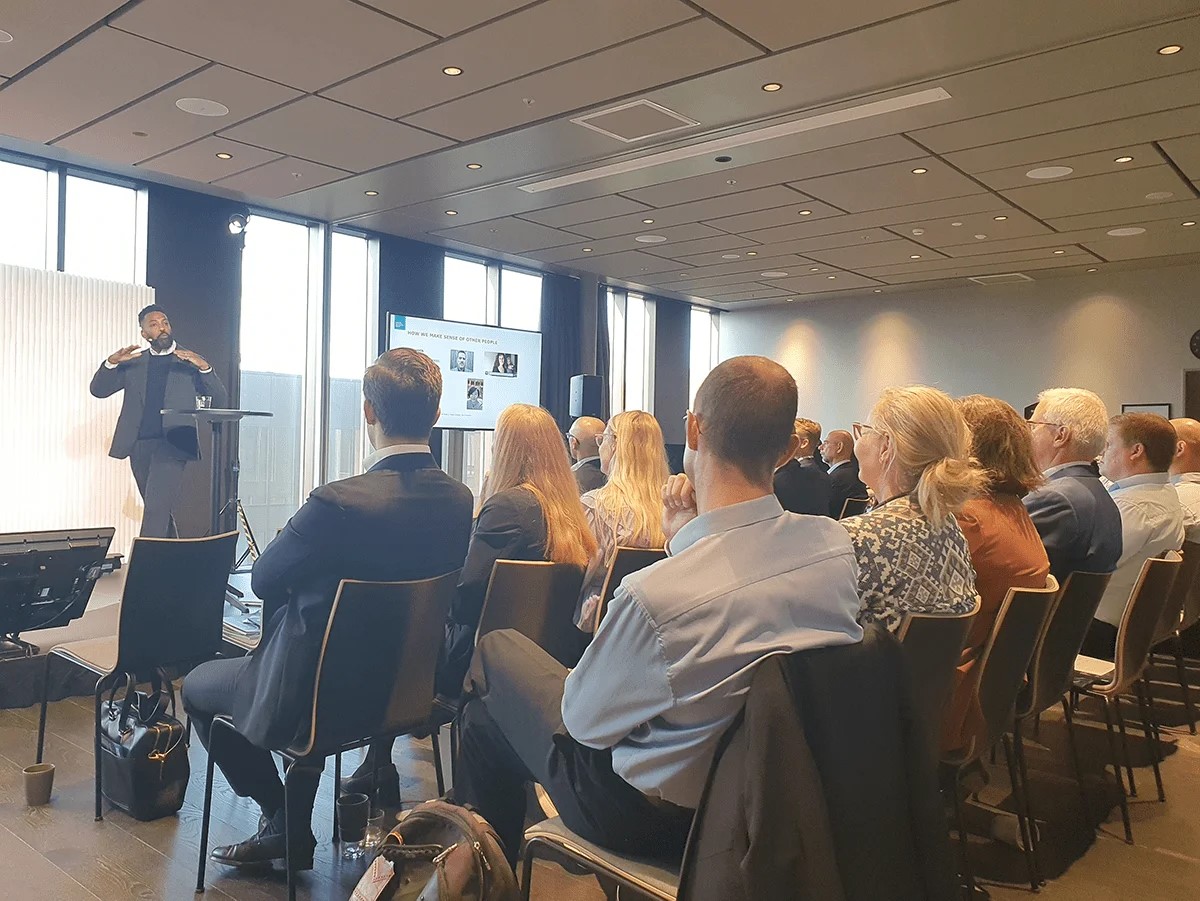Under the banner ‘IR – now and beyond’, the Danish IR society (DIRF) hosted its annual conference on September 21, with 125 attendees in tow.
DIRF, whose membership includes IR professionals from other countries including Iceland and Sweden, hosted its conference – DIRFdagen – in Copenhagen, Denmark, with a diverse array of sessions and plenty of networking opportunities.

ESG as a common denominator
More than any other topic, ESG defined the day, complemented by current and emerging IR macrotrends such as geopolitics and artificial intelligence (AI). On a day when the summer sun revisited Copenhagen, DIRFdagen kicked off in the morning with a networking session over coffee while participants picked up their credentials and connected with peers and colleagues.
Introductions were made by consultant and conference moderator Rachel Curtis Gravesen and Claus Ingar Jensen, DIRF chair. The first formal session included a case study of how IR has helped address strategic challenges at the Danish biotech company Zealand Pharma, presented by its CEO Adam Steensberg.
This was followed by a session focused on debt IR, where Sandra Wessman from S&P, ISS’ Jacob Johansen and Nicolai Tvernø of Danske Bank discussed the impact of increasing interest rates on debt IR and funding, the work of maintaining credit metrics and interaction with rating agencies.
The first set of breakout sessions covered the European Sustainability Reporting Standards (ESRS). Simon Taylor of Position Green discussed his firm’s latest findings on preparedness for ESRS at companies, and one important take-home message for Danish IROs was their lower level of readiness compared with Norway and Sweden – though the finding is potentially skewed by some of the smaller Danish banks (a similar finding was covered recently in another IR Magazine article).
The other breakout session, hosted by Mattias Bendixen of Euronext, covered shareholder knowledge and the new EU Shareholder Rights Directive.

AI on the agenda – and the changing face of IR
As the participants came back together after the breakout sessions, AI was on the agenda, with Henrik Gøbel of Morgan Stanley discussing how AI is already used in the language and tonality processing of company disclosures and has potential applications in investor targeting, market intelligence, reporting and more.
After lunch, a panel including Pernille Friis Andersen of HCA Capital and veteran IRO Lynge Blak celebrated DIRF’s 35-year anniversary, covering how IR has changed since the society’s inception with globalization, digitalization, compliance, reporting – including ESG – changes on the buy side and sell side and whether IR is a rotational or career job.
The second set of breakout sessions focused on investor targeting and communicating sustainability. Mark Simms and Simon Bray of CMi2i discussed the importance of knowing the shareholder structure and register, especially in relation to corporate actions and voting, while Mikkel Lotzfeldt of Geelmuyden Kiese covered how sustainability can be a double-edged sword depending on how it is communicated.
The inherent theme of ESG continued with a session on geopolitical tensions where two macroeconomic experts, Timothy Ash of RBC BlueBay Asset Management and Allan von Mehren from Danske Bank, presented and discussed the current situation and ongoing geopolitical tensions in Eastern Europe and Asia. Your humble author covered the company and IR perspective.
All speakers provided tangible recommendations for how public companies can navigate the current climate and challenges.
Extending the topic of global differences, Bobby Bovell of Living Institute hosted a very interactive and fun session on unconscious bias – a topic that nicely relates to geopolitics but also extends into the daily life of IR, both as it affects team interactions and dynamics and when dealing with investors, analysts and other stakeholders.
DIRFdagen ended with another networking opportunity and, based on feedback and responses received, participants were very pleased with the new venue, this year’s format and the topics covered. There is no doubt that sustainability has taken center stage on the IR agenda and that ESG tools in the IR toolbox are needed now more than ever.










